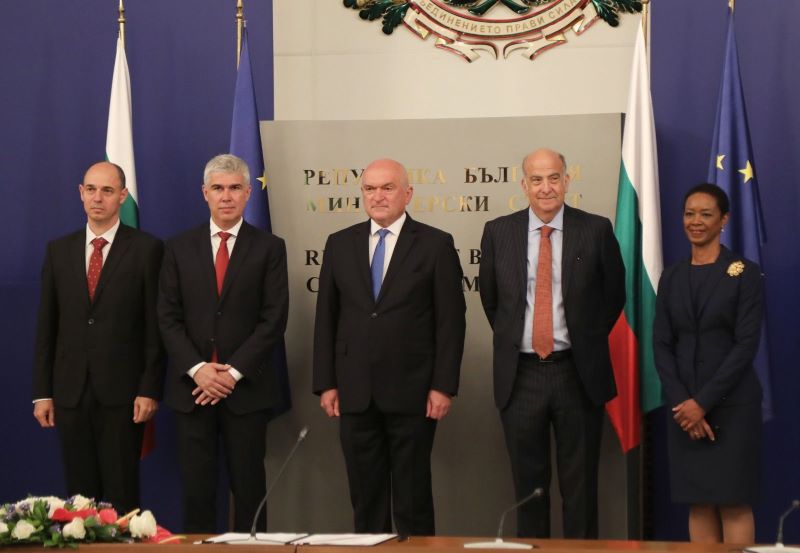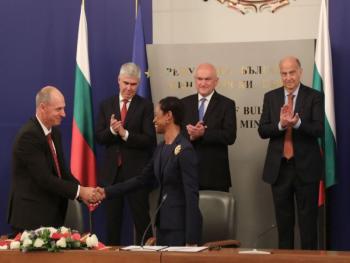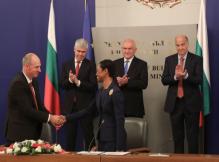ESO and USTDA signed an agreement for a feasibility study on the East –West Energy Corridor
The U.S. Trade and Development Agency (USTDA) will provide grant financing for a feasibility study on the construction of the East-West Energy Corridor. A grant agreement was signed today at the Council of Ministers by the executive directors of USTDA and “Electricity System Operator” EAD, Ms. Enoh T. Ebong and Mr. Angelin Tsachev, in the presence of the U.S. Ambassador to Bulgaria H. E. Kenneth Merten, Prime Minister Dimitar Glavchev and the Minister of Energy Vladimir Malinov.
“The cooperation with the U.S. Trade and Development Agency is of great significance for achieving a successful green transformation,” Prime Minister Glavchev said at the signing ceremony. In his words, our partnership with USTDA is an important factor in improving electricity transmission infrastructure and energy security, not only in our country, but in the whole region of Southeast Europe as well. Prime Minister Glavchev underlined that the involvement of USTDA is an indicator for the viability and sustainable future of our projects.
The U.S. Ambassador to Bulgaria H. E. Kenneth Merten welcomed the feasibility study by saying that the project will help improve the efficiency of the system, reduce costs for consumers and companies, support the integration of renewable energy production and distribution and help reduce carbon and other emissions. This is also an important step towards a greener future for Bulgaria and the region.
Our partnership with ESO will contribute to the development of Bulgaria's renewable energy, climate and economic ambitions and enhance the benefits for the whole of Europe. By using U.S. technology, USTDA's commitment will help mitigate the climate crisis by supporting Bulgaria's goals of decarbonising its energy sector and providing additional capacity for renewable energy resources, the U.S. Trade and Development Agency Director Ms Enoh T. Ebong pointed out.
“The East-West energy corridor project initiated by ESO EAD will help increase energy security in the region,” Energy Minister Vladimir Malinov underscored. In his words, this is another key step in the transformation of Bulgarian energy, which will enable more RES capacity to join the grid, thus increasing its capacity. Minister Malinov expressed satisfaction with working with a reliable and valuable partner such as USTDA, whose expertise and professionalism are indisputable asset for the development of Bulgarian energy.
The East-West Energy Corridor project will connect the electricity transmission networks of Turkey, Bulgaria, Greece, North Macedonia, Kosovo, Albania and Montenegro, with the possibility of reaching Italy as well. The feasibility study, which is worth 1.5 mln US dollars, will provide an economic and technical analysis of the need to expand electricity transmission infrastructure and increase cross-border transmission capacity between Bulgaria and its neighbouring countries Turkey, Greece, North Macedonia and Romania by a minimum of 2,000 MW at each border. This will enable real-time exchange of renewable energy in the region. Plans for the construction of two new pumped storage hydro power plants on Bulgarian territory and their connection to the electricity grid will also be analyzed. The initiative is crucial for the effective use of green energy to cover peak consumption in South-Eastern Europe.



